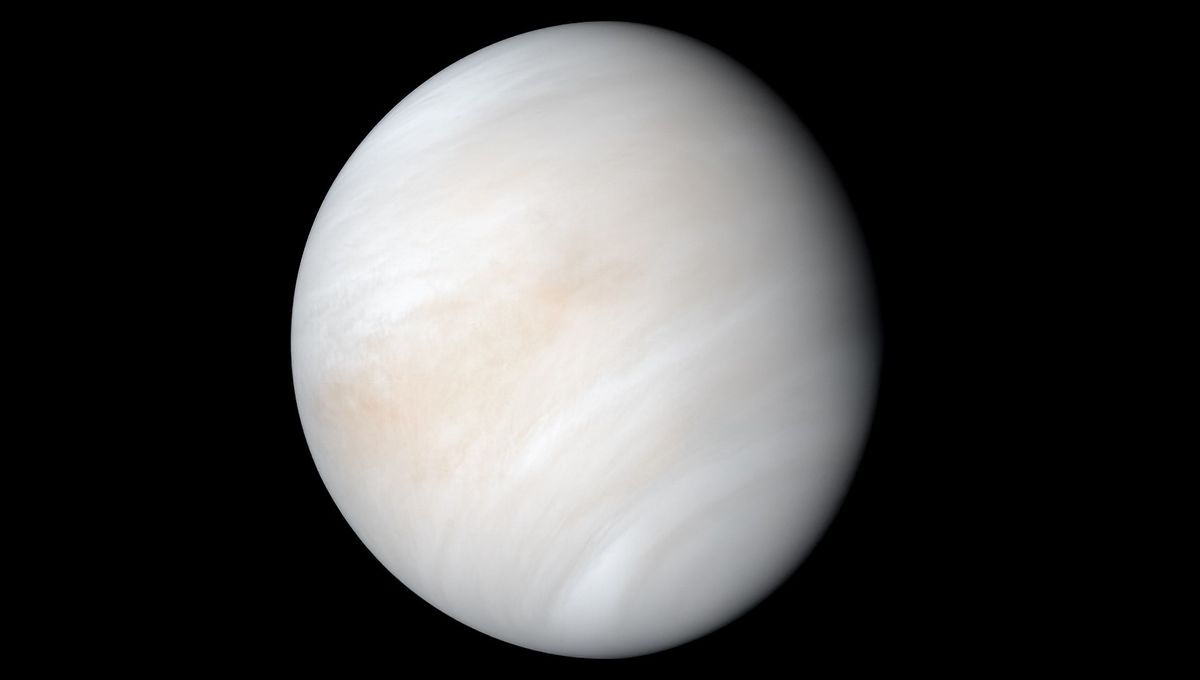
In September 2020, researchers announced they had found the molecule phosphine in the atmosphere. On Earth, the molecule is linked to biological activity, aka life. Its presence on Venus was not expected and couldn’t be explained. Since then, the debate has raged if the observations were correct, if they showed phosphine in the quantities stated, and if something else might explain it. Team lead Professor Jane Greves has teased a new detection in a radio interview.
In the latest episode of Planetary Radio, the weekly podcast of the Planetary Society, host Mat Kaplan talked to Professor Greaves about the observations of Venus and phosphine. Greaves touches on the stepping stones from the first observations, the announcement, the subsequent debate, and the new observations.
The original observations came from the James Clerk Maxwell Telescope (JCMT) in Hawaii and the Atacama Large Millimeter/submillimeter Array in Chile, and were conducted in 2017. A follow-up was conducted in 2020, before the announcement, but was not analyzed until 2021. Again, it showed the phosphine, and were done with a different instrument on the JCMT. Then they discussed the latest observations from last February, showing another detection.
“I haven’t told anyone yet this because I was doing it this morning before speaking to you. But we have a third set of data from the JCMT,” Professor Greaves told Planetary Radio.
“Because on the back of what we had already, they’re allowing us to do what’s called a legacy survey where we can use far, far more telescope time and collect a whole slew of data. My friend there, Dr. Dave Clements at Imperial College here in the UK, is leading that. The whole pile of data from February landed on my computer, which is a very slow computer, and I finally teased out the third detection of phosphine from the JCMT just this morning. So, in fact, your listeners are the first to know that because I haven’t had time to email Dave yet.”
The finding is an intriguing new twist in the phosphine saga. Obviously, it is fresh off the telescope, so we shall have to wait for the full analysis once it is published in a journal. An analysis that Greaves promises to be a lot more insightful.
“The new JCMT detection provides some extra robustness, as it was a different instrument from the discovery data. It also lets us start checking any variability over time,” Professor Greaves told IFLScience. “Because of that, it will probably be published as part of a bigger work about time changes – we have 4 epochs with detecting now!”
Venus remains a hot topic – and not just because it has a surface temperature high enough to melt lead. It is the target of multiple missions from NASA and the European Space Agency and the debate about phosphine in its atmosphere continues.
Source Link: The "Phosphine On Venus" Saga Has An Exciting New Twist